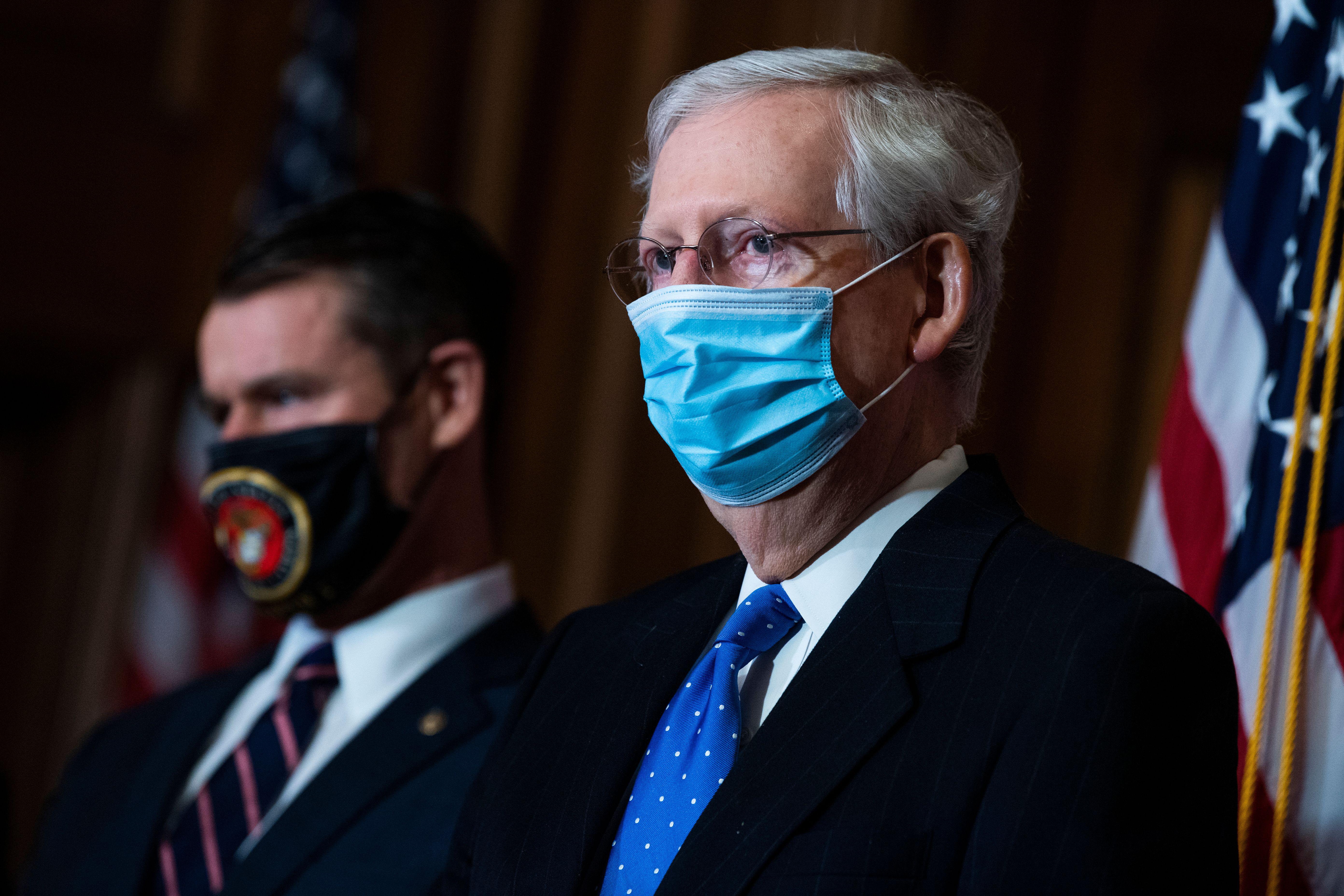On Tuesday, a bipartisan group of lawmakers from the Senate and House decided to show a modicum of responsibility by attempting to break the monthslong stalemate on Capitol Hill over coronavirus relief. The crew unveiled a $908 billion compromise package that addressed most of the economic issues Democrats are concerned about, but at a price point moderate Republicans could maybe live with. It didn’t take long, unfortunately, for Senate Majority Leader Mitch McConnell to dismiss the effort, telling reporters, “We just don’t have time to waste time.”
McConnell, who says he wants to pass legislation before Congress leaves town for Christmas later this month, is instead circulating his own, roughly $550 billion proposal, which he has precleared with the White House. It’s essentially a revision of his previous proposals that Democrats have rejected as insufficient. And while it’s unlikely that Democrats would ever agree to pass it, it’s worth reiterating that doing so under current circumstances might actually be worse than doing nothing.
McConnell’s bill includes a few big-ticket items that Congress broadly agrees on. It includes $332.7 billion for small businesses, mostly via another round of the Paycheck Protection Program, and $105 billion to help schools cope with the pandemic. There’s $16 billion for testing and tracing efforts, $31 billion for vaccine development and distribution, $10 billion of loan forgiveness for the U.S. Postal Service, and $5 billion for child care. These are all popular, consensus priorities.
From there, though, the plan goes off the rails. Despite its slight size, the proposal is dotted with a number of inessential pet priorities from various Republicans presumably meant to win votes (or the president’s signature). It would make business lunches 100 percent deductible again, a hobbyhorse of Donald Trump’s nobody thinks will be helpful, and it includes a bit on rare-earth mining that’s essentially a bribe for Alaska’s Lisa Murkowski. But aside from the goofy bits, the outline really has three main problems.
First, it does roughly jack for Americans who are out of work. At the moment, federally funded unemployment benefits for the long-term jobless, as well as gig workers and freelancers, are set to expire by the end of this year. According to the Century Foundation, 12 million people could see their aid disappear the day after Christmas (2.9 million of them could still receive some help from extended state benefits, but 9.1 million would be left without any assistance at all). This holiday cliff is a major factor putting pressure on Congress to pass a new bill before 2020 is out. But McConnell’s Scrooge-like proposal would only extend these programs for a single month. As if that weren’t miserly enough, the proposal doesn’t actually add to the number of weeks individuals are eligible to collect unemployment, so people who reach the end of their benefits would still be cut off. It essentially looks like McConnell is trying to wind down the unemployment programs Congress created in March, while avoiding some politically damaging holiday headlines right before the Georgia Senate runoffs in early January.
Second, other than money for schools, McConnell’s proposal also does not include any new aid for state and local governments, which are being swamped in a flood of red ink, or battered transit systems, which may be forced to cut service to the bone. Making matters worse, it includes a provision that would make sure the Federal Reserve’s emergency lending program for state and local governments is terminated at the end of this year and could not be restarted. (Treasury Secretary Steve Mnuchin is currently planning to let that effort expire, but his successor could theoretically restart it). The bill doesn’t just deny states more help; it cuts what little safety net currently exists out from under them while they are already in free fall.
Finally, McConnell is still demanding a strong liability shield to protect businesses and employers from coronavirus-related lawsuits. This is his personal red line, the one prize he truly seems particularly interested in at this point. And if he were to get it, there’s little reason to assume he’d eventually agree to pass another round of relief in the new year under the Biden administration. (At the moment, all he has merely promised is that: “After the first of the year there’s likely to be a discussion about an additional package of some size depending upon what the new administration wants to pursue.” A discussion. Right.) Hence why passing this bill might actually be worse than doing nothing: It would take any remaining pressure off him to act, while leaving states and the jobless to dangle indefinitely.
Again, there’s little chance that McConnell’s proposal would pass as is. At the moment, he, Nancy Pelosi, and Chuck Schumer are trying to negotiate some sort of agreement, though they don’t appear to be making much headway. But even as an opening bid, it’s an insulting gesture, not just to Democrats but to all the Americans who are waiting for help from Washington. The majority leader is very much wasting everybody’s precious time.
